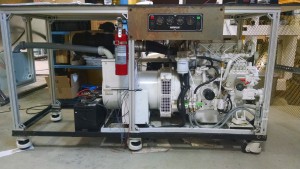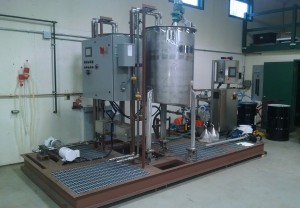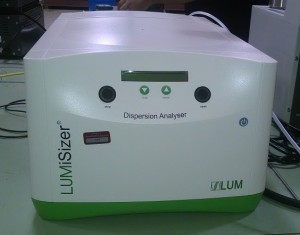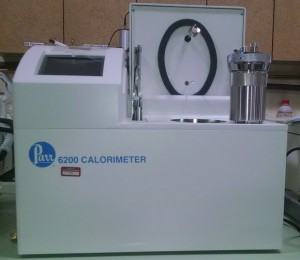Engine and Fuels Laboratory
METEL’s Engine and Fuels Laboratory supports basic research and engineering projects leading to new alternative fuels, improved engine efficiency, optimized waste heat recovery systems and better understanding of diesel exhaust chemistry and morphology. The lab currently houses two fully-instrumented high-speed diesel test engines as well as analytical and wet chemistry lab space. The laboratory also supports unique bench and pilot-scale emulsification equipment for the production of low emissions emulsion fuels. The facility is staffed by three full-time research engineers as well as associated MMA faculty and external collaborators. The following resources are available.
Test Engine Platforms
Single-Cylinder Engine Platform: The engine platform is a gasoline/diesel interchangeable test platform utilizing a Land & Sea water-brake dynamometer with high-speed torque cell. The platform is equipped with a dedicated five-gas analyzer bench to monitor CO, CO2, O2, THC and NOx emissions. A heated dilution tunnel allows sampling of unregulated emissions and particulates. A high-speed National Instruments data-acquisition system calculated specific engine emissions, fuel economy and thermal efficiency. Engines currently available for use on the test platform is an air-cooled, naturally-aspirated 7Hp Hatz 1B30 diesel and a direct-injection 13 Hp Koehler Command gasoline engine.
Mul ti-Cylinder Diesel Platform: A 4-cylinder Caterpillar C2.2 27 kW diesel engine in generator set configuration. The engine is in-direct injection, turbo-charged, “and tier 3” EPA emissions compliant. The engine is speed-load controlled via a National Instruments high-speed data acquisition and is fully instrumented for detailed exhaust chemistry and fuel performance testing and in-cylinder combustion dynamics.
ti-Cylinder Diesel Platform: A 4-cylinder Caterpillar C2.2 27 kW diesel engine in generator set configuration. The engine is in-direct injection, turbo-charged, “and tier 3” EPA emissions compliant. The engine is speed-load controlled via a National Instruments high-speed data acquisition and is fully instrumented for detailed exhaust chemistry and fuel performance testing and in-cylinder combustion dynamics.
Fuel Processing Equipment
The laboratory maintains state-of-the-art fuel processing equipment for chemistry and process development. Assets range from laboratory-scale through pilot-scale to support fuel development activities to the point of commercialization. The below list are emulsion preparation equipment suitable for project activities.
- Qsonica S4000 in-line ultrasonic processor.

- Avestin C-50 Emulsiflex high-pressure homogenizer.
- Pilot-scale (150 gal./hr) fuel emulsification processing skid outfitted with dual S.S. pre-mixing tanks (200 gal. and 100 gal.) with Lightnin variable speed mixers, high pressure S.S. CAT 781K pumps (up to 6,000 psi) feed a dual-inlet edge-tone resonant homogenizer “sonolator” (Sonic Corp. Model A).
Analytical equipment
- BMI condensation particle counter (CPC) with scanning electrical mobility spectrometer (SEMS) for soot and aerosol measurements.
- MKS Multigas 2030 continuous hot-cell Fourier transform infrared analyzer (FTIR) for gaseous emissions monitoring.
- Horiba STEC FMA-220 flame ionization detector (FID) and paramagnetic oxygen analyzer.
- CAI 100 non-dispersive infrared (NDIR) carbon monoxide analyzer.
- Horiba CFA-311A chemiluminescence nitrogen oxides analyzer.
- Koehler Instruments K14200 tag closed cup flash point tester (ASTM D93).
- LUMisizer centrifugal dispersion analyzer.
- Parr Instruments 6200 automatic isoperibol oxygen bomb calorimeter.
- Cold soak filter plugging (ASTM D7501).
- Mettler Toledo S230 conductivity meter









All Rights Reserved © 2025 • Web issue?
Non-Discrimination Notice • Privacy Policy & GDPR